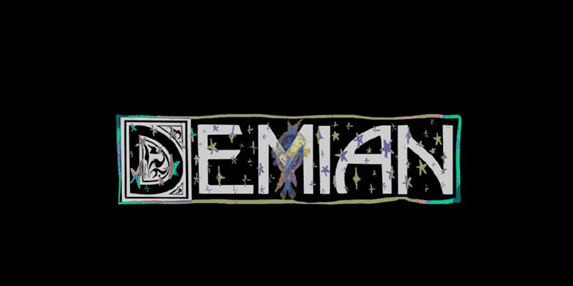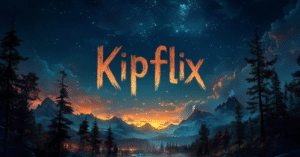In a world of rapidly fading folklore and homogenized media, some words carry a cultural weight so deep, they defy borders. One such word is đeman—a term that sounds mystical and unfamiliar to many but resonates with profound symbolic power across regions and generations.
From Eastern European villages where it evokes stories of guardian spirits, to Vietnamese stages where it transforms into an emotional tapestry of music, poetry, and dance, đeman is more than a word—it is a cultural bridge. This article unpacks the layered meanings of đeman and explores how it serves as a living emblem of identity, memory, and expression across cultures.
What Is Đeman?
Đeman (pronounced roughly as “yeh-man” or “zheh-man” depending on the dialect) is a polysemous term, meaning it holds multiple meanings across different cultures. Though not easily translated into a single English word, its essence revolves around:
- Spirit or spiritual force
- Cultural storytelling or performance
- Community morality and values
- Artistic ritual and identity expression
Depending on where you are in the world, the meaning of đeman shifts subtly—yet retains its emotional depth and symbolic purpose.
Origins and Etymology of Đeman
The word đeman is believed to have linguistic roots in both Slavic and Austroasiatic languages:
- In South Slavic folklore, particularly in regions like Bosnia, Serbia, and Montenegro, đeman is sometimes linked to a guardian spirit or force tied to the natural world and communal ethics.
- In Vietnamese culture, “đeman” can refer to a layered, ritualistic performance art that blends poetry, music, theatrical gesture, and dance, serving as a means of emotional expression and spiritual catharsis.
This dual etymology makes đeman a cultural chameleon—a word that adapts but always carries a deeper significance rooted in tradition and expression.
Đeman in Eastern European Folklore
A Spirit of the Forest and Community
In Eastern Europe, particularly the Balkan regions, the concept of đeman is closely tied to guardian spirits or ancestral protectors. These spirits are neither gods nor demons—they dwell in between, often associated with:
- Forests, rivers, and caves
- The moral compass of a village
- Protection from harm or bad luck
Elders in some rural communities still tell stories of “đeman” spirits who watch over the community, intervening during times of moral crisis or environmental imbalance.
Folkloric Traditions and Oral Stories
In tales passed down through generations:
- The đeman appears to warn against selfishness or punish betrayal.
- They are often shapeshifters or invisible watchers, heard in the rustling of leaves or the howl of wind.
- Rituals, such as lighting candles or offering bread, are sometimes performed to honor or appease the đeman.
This folklore emphasizes that đeman is not evil, but a keeper of balance—a spirit that ensures community integrity and harmony with nature.
Đeman in Vietnamese Culture
A Living Performance of Emotion and Identity
In Vietnam, đeman takes on an artistic and spiritual form, evolving into a multi-sensory ritual that combines:
- Live music (often traditional instruments like đàn bầu or đàn tranh)
- Poetry and chanting
- Expressive dance and facial performance
- Costumes representing ancestral spirits or mythic characters
These performances are communal acts of remembrance, healing, and celebration. They’re often performed during:
- Festivals
- Ancestor worship ceremonies
- Cultural heritage days
Đeman in Vietnam isn’t just for show—it is an embodied language of emotion and belonging, connecting the living with their past, and the individual with the collective.
Spiritual and Emotional Layers
Vietnamese scholars and performers describe đeman as:
- A “mirror to the soul”
- A therapeutic art form that allows suppressed emotions to be safely expressed
- A cultural archive that preserves generational wisdom and values
The performance of đeman often ends with a moment of silence or shared breath—symbolizing the return to self after a journey through emotion and spirit.
Đeman as a Universal Symbol
Despite geographical and cultural differences, đeman shares a core function: it connects people to something greater—whether that’s community, heritage, or the natural world.
Common Threads Across Cultures
- Rooted in tradition but adaptable to the modern world
- Used as a moral or spiritual guide
- Bridges generations through storytelling or ritual
- Evokes strong emotional response or transformation
In this way, đeman is similar to concepts like:
- “Kami” in Shinto (Japan)
- “Daimon” in ancient Greek culture
- “Orisha” in Yoruba spiritual practices
Why Đeman Is Gaining Global Attention
As interest in slow living, ancestral wisdom, and spiritual practices rises worldwide, words like đeman offer a language for what modern society often forgets: connection, ritual, and rootedness.
Trending Themes Aligning with Đeman:
- Cultural revivalism
- Mindful storytelling
- Reconnecting with nature
- Mental health through art and ritual
Social media has also played a role. Short clips of đeman performances or folklore storytelling are gaining popularity on:
- TikTok (as a form of spiritual ASMR)
- YouTube (for cultural education)
- Instagram (as part of slow culture and folk aesthetics)
How to Experience Đeman Today
You don’t need to live in Vietnam or Eastern Europe to connect with the spirit of đeman. Here are ways to explore it:
Read Folklore and Oral Histories
Explore books or online archives focused on Balkan or Southeast Asian mythology.
Watch and Listen to Đeman-Inspired Performances
Search for đeman performances on YouTube, or stream traditional Vietnamese music and chants.
Create Personal Rituals
Light a candle, read a family story, or write poetry that honors your heritage. That’s đeman in practice.
Join Cultural Exchanges or Workshops
Many online platforms now offer virtual storytelling circles or performance art classes where you can engage with living traditions.
Conclusion
Đeman may be an unfamiliar word to many, but its message is universal: we are more than individuals—we are stories, rituals, memories, and connections. Whether as a forest guardian in Eastern Europe or a healing performance in Vietnam, đeman speaks to our need for rootedness, reverence, and remembrance.
As the world becomes more fast-paced and fragmented, the spirit of đeman calls us back—to the old ways, to each other, and to ourselves.
So next time you hear the wind move through trees or feel emotion stir through music, remember: that too might be đeman—watching, guiding, and reminding us of who we are.




